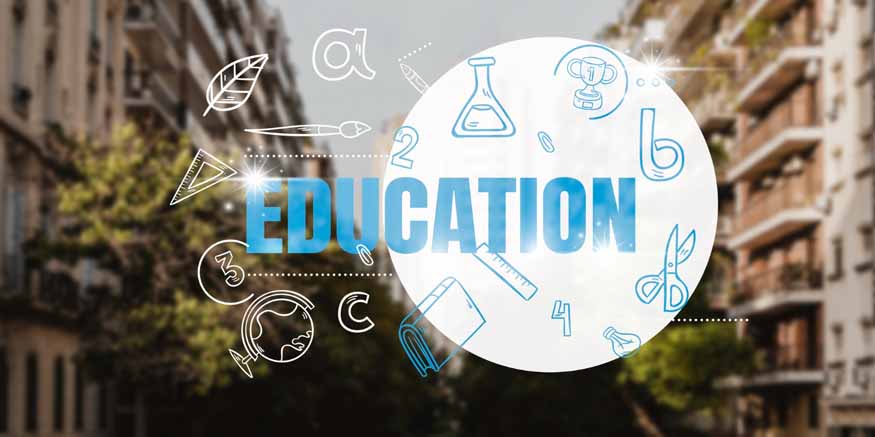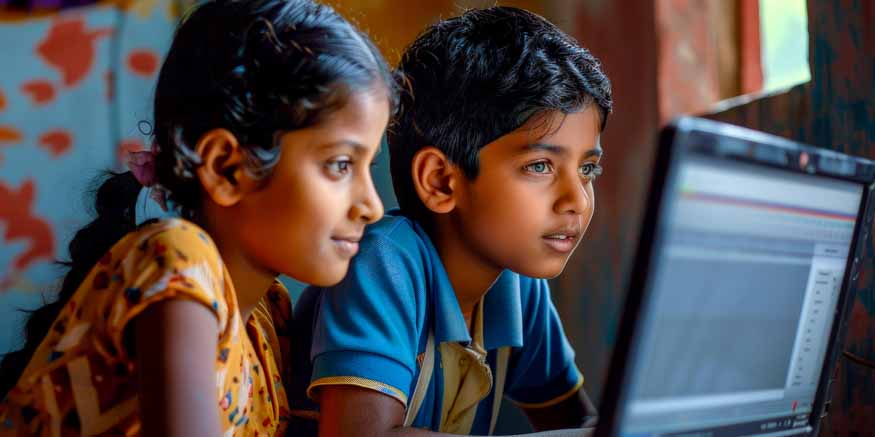India, with its diverse landscape, is home to a wide spectrum of educational challenges and opportunities. The ICSE curriculum, known for its quality and holistic approach to education, is a testament to the standards desired in Indian education. While the implementation of such a curriculum in urban areas has been relatively smooth, the transition to rural areas poses distinctive challenges and opens up new possibilities. In this blog, we delve into the challenges of ICSE education in rural India and illustrate the opportunities it presents, along with examples of successful endeavours.
Also Read : Understanding the ICSE Curriculum for Primary Education
Challenges of ICSE education in rural India:
Here are the important challenges of ICSE education in rural India and also know about rural schools and ICSE challenges.
1. Infrastructure and Resources:
In rural areas, schools often lack proper infrastructure and resources such as libraries, laboratories, and internet connectivity, which are essential for implementing the ICSE curriculum in rural areas effectively.
2. Qualified Teachers:
Considering rural schools and ICSE challenges, recruiting and retaining qualified ICSE teachers in rural areas can be challenging. However, initiatives like the Teach for India program have been successful in bridging this gap by training and placing dedicated teachers in remote regions.
3. Curriculum Adaptation:
Adapting the ICSE curriculum to suit the local context can be challenging. The Eklavya Model Residential School in Madhya Pradesh has customized the ICSE curriculum to include regional languages and cultural studies, making it more accessible and relevant to students in the region.
4. Economic Disparities:
Rural areas often have a higher percentage of economically disadvantaged students. Scholarships and financial aid programs like the Tata Trusts’ initiative to support meritorious students from rural backgrounds have helped bridge this gap.
5. Parental Resistance:
Considering rural schools and ICSE challenges, some parents in rural areas may resist the shift to ICSE education due to cultural or financial concerns. Community engagement programs like regular meetings and awareness campaigns in villages have been instrumental in addressing these concerns and garnering support.
6. Language Barrier:
Many rural students are more comfortable with their regional languages, which can be a barrier to learning the English language, the primary language of ICSE. Bilingual teaching models, such as those employed by the Akshaya Patra Foundation, have proven effective in addressing this challenge.
7. Teacher Training:
Training teachers in rural areas to effectively implement the ICSE curriculum in rural areas is crucial. The Azim Premji Foundation’s Teacher Education Program focuses on building the capacity of educators in underprivileged areas.
8. Assessment and Examination Challenges:
Conducting fair and standardized examinations in remote areas can be challenging. The use of technology, like remote proctoring and online examination systems, has been a game-changer in ensuring integrity in assessments.
Also Read : ICSE Curriculum Education Benefits For Your Child
Opportunities for ICSE in rural schools:
1. Quality Education:
Implementing ICSE in rural areas elevates the quality of education, ensuring students receive a holistic and well-rounded learning experience, just like their urban counterparts.
2. Improved Career Prospects:
Students from rural areas with ICSE qualifications are more competitive in the job market, leading to better career opportunities. Institutions like the TATA Education and Development Trust provide career guidance and placement assistance to rural students.
3. Community Development:
One of the best opportunities for ICSE in rural schools often leads to broader community development. For instance, The Shiksha Bharati Network in rural Rajasthan has improved overall literacy rates, health awareness, and community participation.
4. Cultural Exchange:
Introducing ICSE education in rural areas provides opportunities for cultural exchange. Students learn about different regions of India, fostering national unity and diversity.
5. Innovation and Creativity:
ICSE encourages critical thinking and creativity. The Rural Development Trust’s Schools in Andhra Pradesh have successfully integrated innovative learning practices to foster creativity among students.
6. Empowerment of Women:
Opportunities for ICSE in rural schools often have gender disparities in education. Implementing ICSE can empower girls and women, as seen in the Kasturba Gandhi Balika Vidyalaya project in Odisha, which offers ICSE education to girls from marginalized backgrounds.
7. Talent Recognition:
Rural areas have immense untapped talent. Implementing ICSE allows the identification and nurturing of gifted students. The Bhagavatula Charitable Trust Talent Search Exam identifies and supports talented students in rural Telangana.
8. Digital Literacy:
Implementing the ICSE curriculum necessitates the use of technology, which in turn promotes digital literacy among students, preparing them for the digital age.
Also Read : ICSE Board Education: Meaning, Advantages, & Curriculum Details
Examples of Successful Initiatives:
- The Akshaya Patra Foundation: This organisation operates schools in rural areas, where they provide ICSE education alongside nutritious meals. This initiative addresses both the educational and nutritional needs of students.
- The Rural Development Trust: Based in Andhra Pradesh, this organization has adopted the ICSE curriculum and uses innovative teaching methods to engage students in rural areas, promoting creativity and critical thinking.
- Teach for India: This program recruits and trains dedicated teachers who commit to teaching in underserved communities, including rural areas. These teachers help bridge the gap in teacher shortages.
- TATA Education and Development Trust: TATA Group’s education arm provides scholarships, career guidance, and support for rural students, enabling them to pursue quality education and better career prospects.
- Kasturba Gandhi Balika Vidyalaya: This government initiative focuses on providing ICSE education to girls from marginalized backgrounds, promoting gender equality and empowerment in rural areas.
- 6. Eklavya Model Residential Schools: These schools have successfully customized the ICSE curriculum to make it more regionally relevant, incorporating local languages and cultural studies.
- The Bhagavatula Charitable Trust Talent Search Exam: This initiative identifies and nurtures talented students in rural Telangana, providing them with the opportunity to excel academically.
Also Read : A Comprehensive Guide to ICSE Syllabus for Classes 1-10
Conclusion:
At EuroSchool, we understand that the implementation of the ICSE curriculum in rural areas of India is undoubtedly challenging, but the opportunities it presents far outweigh the obstacles. Quality education not only affects individual student’s lives but also contributes to community growth and national advancement. The examples of successful programs presented in this blog show that with the correct tactics, focused efforts, and community engagement, it is feasible to give a world class education to rural students. While doing this, we may bridge the educational barrier between rural and urban regions, empower the impoverished, and tap into the hidden potential of our rural child, resulting in a fairer and wealthier India.









